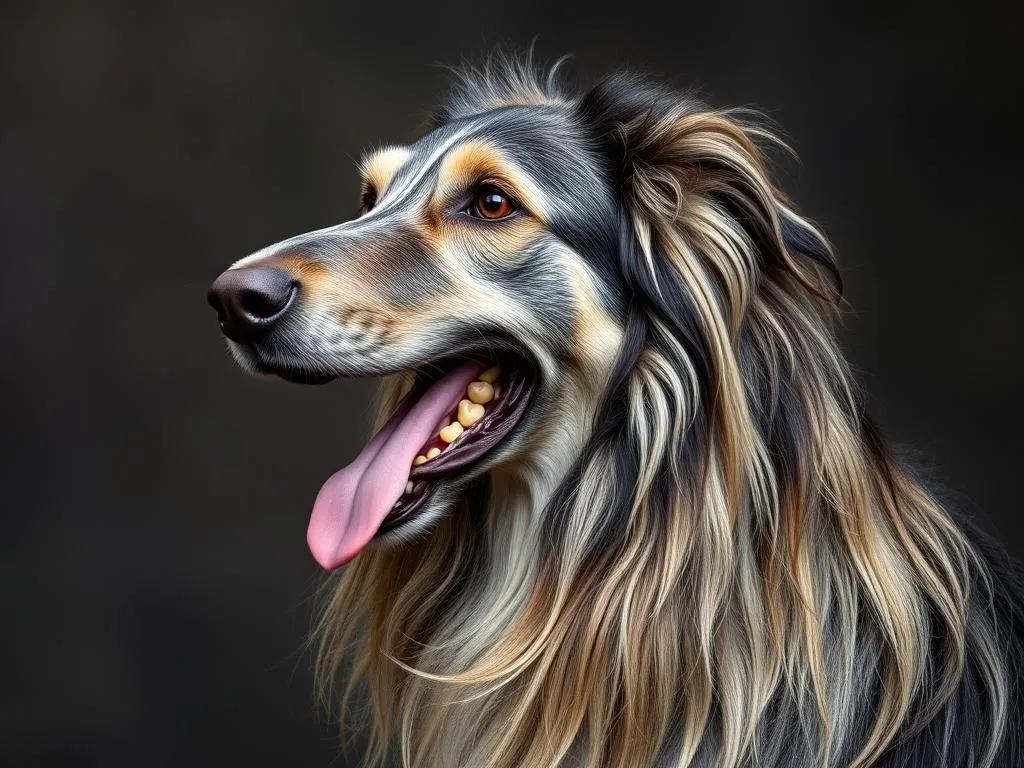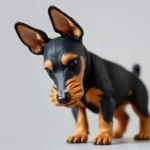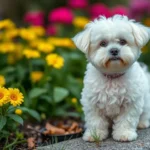
Introduction
Dog breeds vary widely in size, appearance, and temperament, each with unique characteristics that suit different lifestyles and preferences. Understanding these differences is essential for prospective dog owners, as it helps ensure a harmonious match between the dog and its human family. Among the many breeds, the Borzoi stands out with its graceful presence and rich history. This article delves into the captivating world of the Borzoi, exploring its origins, physical traits, personality, care needs, and more.
History of the Borzoi
Origin and Ancestry
The Borzoi, also known as the Russian Wolfhound, hails from Russia and has a storied past that intertwines with the country’s aristocracy. This breed was developed primarily for hunting wolves and other large game. The Borzoi’s ancestry can be traced back to the 17th century, where it was bred from long-haired sighthounds and local breeds. The result was a dog that not only excelled in speed and agility but also possessed a striking appearance.
Historical Significance in Hunting
Throughout its history, the Borzoi played a crucial role in Russian hunting culture. Russian nobles would often organize elaborate wolf-hunting expeditions, and the Borzoi was an integral part of these hunts, demonstrating remarkable speed and endurance. The breed’s ability to pursue and corner large animals made it a prized possession among the elite.
Recognition as a Distinct Breed
In the late 19th and early 20th centuries, the Borzoi began to receive recognition as a distinct breed. The first breed standard was established in 1900 by the Russian Borzoi Club, and soon after, various kennel clubs around the world began to recognize the breed. This formal acknowledgment solidified the Borzoi’s status and showcased its unique characteristics.
Cultural Impact and Representation in Art and Literature
The Borzoi has significantly influenced Russian culture, often appearing in literature and visual arts. Renowned authors such as Leo Tolstoy and Anton Chekhov featured these elegant dogs in their works, highlighting their noble and gentle nature. Additionally, the breed’s striking appearance has made it a favorite subject for painters and photographers alike.
Physical Characteristics of the Borzoi
Size and Weight
The Borzoi is a large breed, with males typically standing between 28 to 32 inches at the shoulder and weighing between 75 to 105 pounds. Females are slightly smaller, ranging from 26 to 30 inches in height and weighing between 60 to 85 pounds. Their tall, slender build is complemented by a long, elegant neck.
Coat Types and Colors
The Borzoi is known for its luxurious coat, which can be either long-haired or short-haired. The long-haired variety features a silky, flowing coat that requires regular grooming to prevent matting. Coat colors can vary widely, including white, cream, gold, gray, and black, often with unique patterns and markings.
Distinctive Features
The Borzoi possesses several distinctive features that contribute to its striking appearance. Its long, narrow head is adorned with a pronounced muzzle, giving it a regal look. The breed’s deep chest and long legs highlight its athletic build, while its long, feathery tail adds to its elegance. Overall, the Borzoi exudes grace and poise, making it a favorite among dog enthusiasts.
Temperament and Personality
General Behavior Traits
The Borzoi is known for its gentle and affectionate nature. Despite its hunting background, this breed tends to be calm and reserved, often forming strong bonds with its family. While they can be playful and energetic, Borzois are also content to lounge around the house, making them adaptable companions.
Interaction with Families and Children
Borzoi are typically good with children, displaying a patient and tolerant demeanor. Their gentle nature makes them well-suited for families, as they enjoy participating in activities with their human companions. However, supervision is essential, especially with younger children, to ensure that play remains safe and enjoyable.
Compatibility with Other Pets
When properly socialized, Borzoi can coexist peacefully with other pets, including dogs and cats. However, due to their strong prey drive, it’s crucial to introduce them to smaller animals cautiously. Early socialization and training can help mitigate any potential issues.
Training Considerations
Intelligence and Trainability
The Borzoi is an intelligent breed, but its independent nature can pose challenges during training. While they are capable of understanding commands, their sometimes stubborn demeanor may require patience and consistency from owners.
Common Challenges in Training Borzois
Training a Borzoi can be particularly challenging due to their strong instincts and independent streak. Positive reinforcement techniques work best, as harsh training methods can lead to resistance or fear. Consistent, gentle guidance is key to successfully training this breed.
Care and Maintenance
Grooming Needs
The grooming needs of a Borzoi vary depending on coat type. Long-haired varieties require regular brushing—ideally two to three times a week—to prevent tangles and mats. During shedding seasons, more frequent brushing may be necessary. Short-haired Borzois require less maintenance but still benefit from occasional brushing to remove loose hair.
Exercise Requirements
Borzoi are active dogs that require regular exercise to maintain their physical and mental well-being. Daily walks, play sessions, and opportunities to run in a secure area are essential. They thrive in environments where they can stretch their legs, so access to a large yard or open space is ideal.
Health Considerations
While generally healthy, Borzoi can be prone to certain health issues. Common concerns include hip dysplasia, bloat, and certain genetic conditions. Regular veterinary check-ups and preventive care, including vaccinations and parasite control, are crucial for maintaining their health.
Living with a Borzoi
Ideal Living Conditions
The Borzoi is best suited for homes with ample space. While they can adapt to apartment living, a house with a large yard is ideal. This breed thrives in environments that allow for freedom of movement and exercise.
Social Needs and Interaction Levels
Borzoi are social animals that require interaction with their families. They thrive on companionship and may become bored or anxious if left alone for extended periods. Regular socialization with other dogs and people is also important to ensure they remain well-adjusted.
Lifestyle Compatibility
This breed is versatile enough to fit into various lifestyles. Borzoi can be a good match for active families who enjoy outdoor activities, as well as quieter households where they can lounge peacefully. However, their exercise needs should always be met to keep them happy and healthy.
Training a Borzoi
Basic Training Tips
Training a Borzoi begins with basic commands such as sit, stay, and come. Using positive reinforcement methods, like treats and praise, can encourage good behavior. Socialization should also be a priority, exposing the dog to various environments, people, and other animals.
Advanced Training Considerations
For owners interested in competitive activities, the Borzoi can excel in agility and lure coursing. These activities tap into their natural instincts and energy levels, providing both physical and mental stimulation.
Resources for Training
Numerous books and online resources can assist Borzoi owners with training techniques. Joining a local training class or club can also provide valuable support and socialization opportunities for both the owner and the dog.
Common Misconceptions About Borzois
Myths vs. Reality
There are several misconceptions about the Borzoi that can mislead potential owners. One common myth is that they are overly aggressive, likely due to their hunting background. In reality, Borzois are gentle and loving companions when properly socialized.
Clarifying the Breed’s Needs and Suitability
Another misconception is that Borzois require extensive exercise and cannot adapt to quieter environments. While they do need regular exercise, they are also content to relax indoors, making them suitable for various living situations.
Conclusion
The Borzoi is a captivating breed that combines elegance with a gentle spirit. Understanding their history, physical characteristics, temperament, and care needs is crucial for anyone considering adding a Borzoi to their family. With their affectionate nature and unique beauty, Borzois can make wonderful companions for the right owners. It’s essential for potential owners to conduct thorough research and consider whether this magnificent breed aligns with their lifestyle and expectations.
By appreciating the unique qualities of the Borzoi, prospective owners can ensure a fulfilling and harmonious relationship with their new furry friend.









